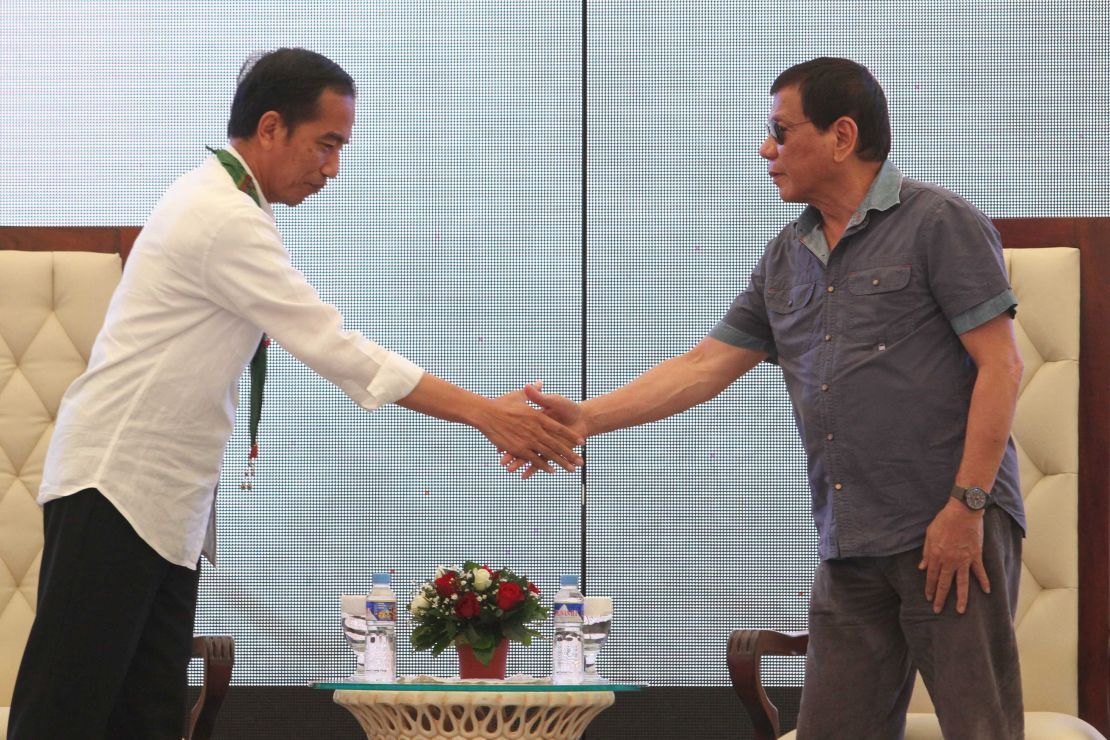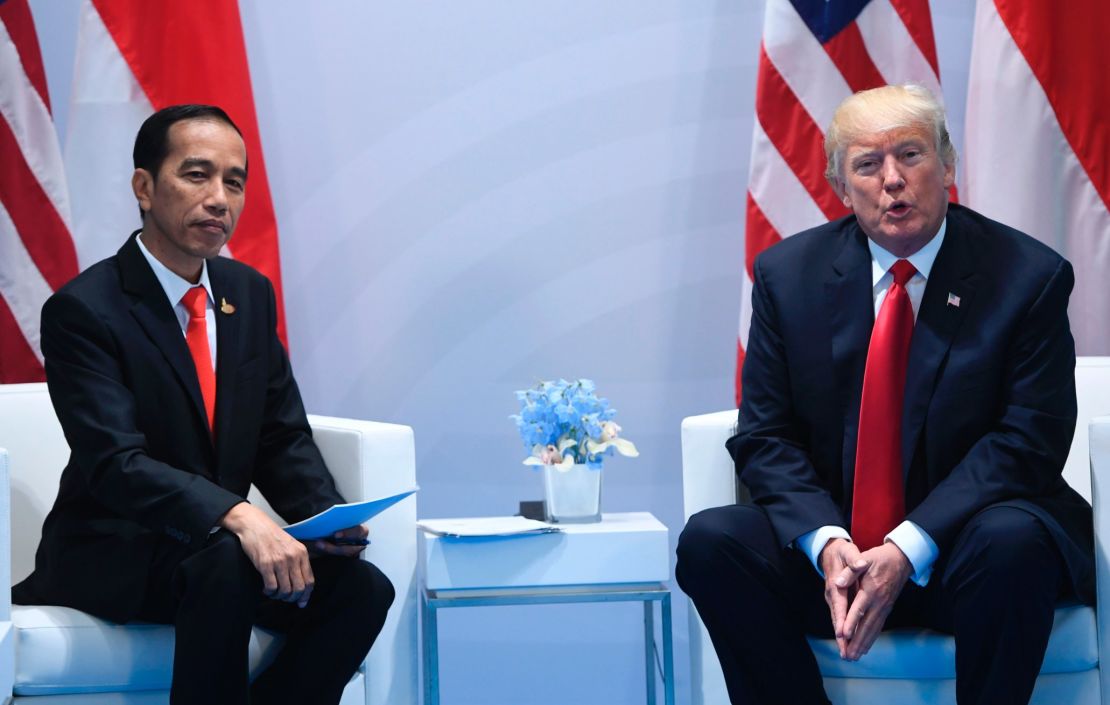Story highlights
Statement likely to be well received inside Indonesia, say analysts
Poor-quality statistics make it hard to quantify Indonesia's drug problem
Indonesian President Joko Widodo has called on police to kill drug dealers who resist arrest in what critics say is an attempt to burnish his credentials as a strongman leader among wavering voters.
“As I’ve said before, just be firmer, especially to those foreign drug dealers entering the country, particularly those who resist. Just shoot them on site, give them no mercy,” Widodo said in a speech to the Islamist United Development Party Friday.
If enacted, the new policy would closely follow that of Philippines’ President Rodrigo Duterte, who’s brutal war on drugs has left up to 8,000 people dead in just over a year.
Human rights activists condemned Widodo’s speech, but political analysts said it was likely to be well received inside Indonesia where hardline drug policies are popular.

“He’s held to his (2014) campaign promise that he would be executing drug dealers and public support for that has barely wavered. It has overall been very popular,” associate professor of Indonesian politics at the Australian National University Greg Fealy told CNN
CSIS political analyst Tobias Basuki said Widodo had deliberately invoked the memory of former Indonesian dictator Suharto in an attempt to appeal to those nostalgic for the former leader.
“There’s a lot of jargon about returning to the New Order period, Suharto being more firm, much more stable, I think he is trying to (say) that he can be as firm as Suharto in a democratic period,” he told CNN.
Suharto ruled Indonesia for over three decades, until his resignation following the aftermath of the Asian financial crisis in May 1998.
‘When we shoot at drug dealers, they go away’
Widodo is not the first high-level Indonesian official to call for extrajudicial killings of drug dealers in the past week.
National Police Chief General Tito Karnavian praised Duterte’s “war on drugs” in a speech Thursday, saying “we see that when we shoot at drug dealers, they go away.”
Karnavian’s speech came after Jakarta police shot a Taiwanese national dead earlier in July during a raid on a methamphetamine smuggling ring.
It was the largest drug bust in the country’s history, local media reported at the time, totaling one tonne of sabu-sabu, the local term for methamphetamine.
Basuki told CNN the real risk of the speeches from Widodo and Karnavian was if police took it as a green light to use excessive force.
“I’m not saying that’s going to happen but I think it’s dangerous,” he said. “If there’s a shooting where it’s not called for, I think there would be a lot less backlash, security would not receive that much criticism.”
Indonesia’s drug problem
The actual extent of Indonesia’s drug problem is unclear, with experts and government officials disagreeing on the nature of the problem.
In 2015, the head of Indonesia’s National Narcotics Agency (BNN) Commander General Anang Iskandar claimed that “33 people die from narcotics everyday,” and that four million people were part of the drug abuse epidemic.
But many experts have criticized these numbers, which Widodo used to justify his harsh policies on offenders, saying they are based on small and outdated surveys with questionable assumptions.
For example, those who had used intravenous drugs once within a 12-month period were categorized as addicts.
“The statistics are flawed,” Human Rights Watch researcher Andreas Harsono told CNN. “Then what is the result? Over the last few years because of that statistical problem the prison density in Indonesia is worsening … I have a personal friend who was caught with two milligrams of sabu-sabu. He got seven years.”
According to a United Nations report in 2010, 0.18% of Indonesia’s population were using amphetamines, or about 469,000 people.
Indonesia has a total population of 258 million, according to 2016 estimates.
Harsono and Basuki both said it was hard to tell how serious the drug problem really was in Indonesia without quality statistics, but Fealy said a lot of Indonesians were already convinced.
“When you hear people talking socially, when you listen to talkback radio, there’s always a flood of calls from people who have personal experience from friends and relatives who have drugs problems which have destroyed their lives,” he said.
Strongman leader
While he is still a popular leader in Indonesia, some analysts felt Widodo’s harsh line on drugs was a way to see off rivals who might paint him as a weak leader.
“For people who are looking for a really determined president, Jokowi ticks more boxes than he had previously done,” Fealy said.
“People think he’s a very decent man, he’s doing good things for the poor, good things for the economy … but on these kinds of issues there is some political benefits for him in appearing to be really uncompromising.”
Widodo has maintained a harsh line on capital punishment for drug traffickers, despite strong international pressure and condemnation.

Friday’s tough speech to the the Islamist United Development Party, who are part of his coalition in the Indonesian parliament, may also have been designed to shore up his support among Indonesia’s huge Muslim population, Fealy said.
But while some analysts said Widodo should be taken at his word on the police shootings, Basuki said he expected a statement from the president’s office soon watering down his statement.
“I think he made a hyperbolic statement, rather than calling it as a policy,” he said.




